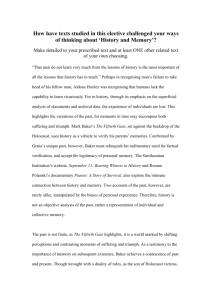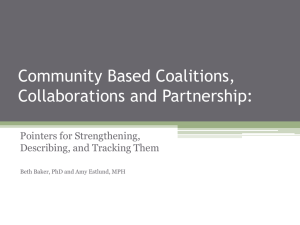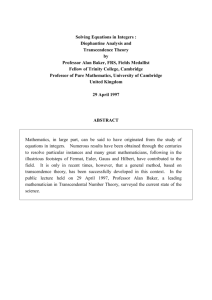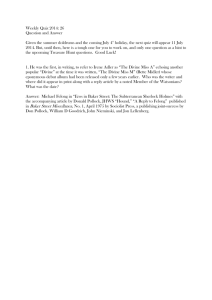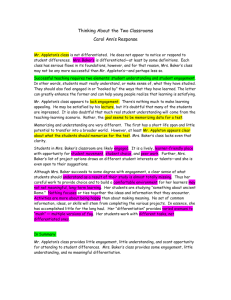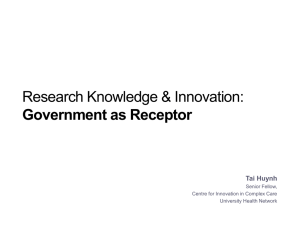Practice Essay - Sydney Home Tutoring
advertisement
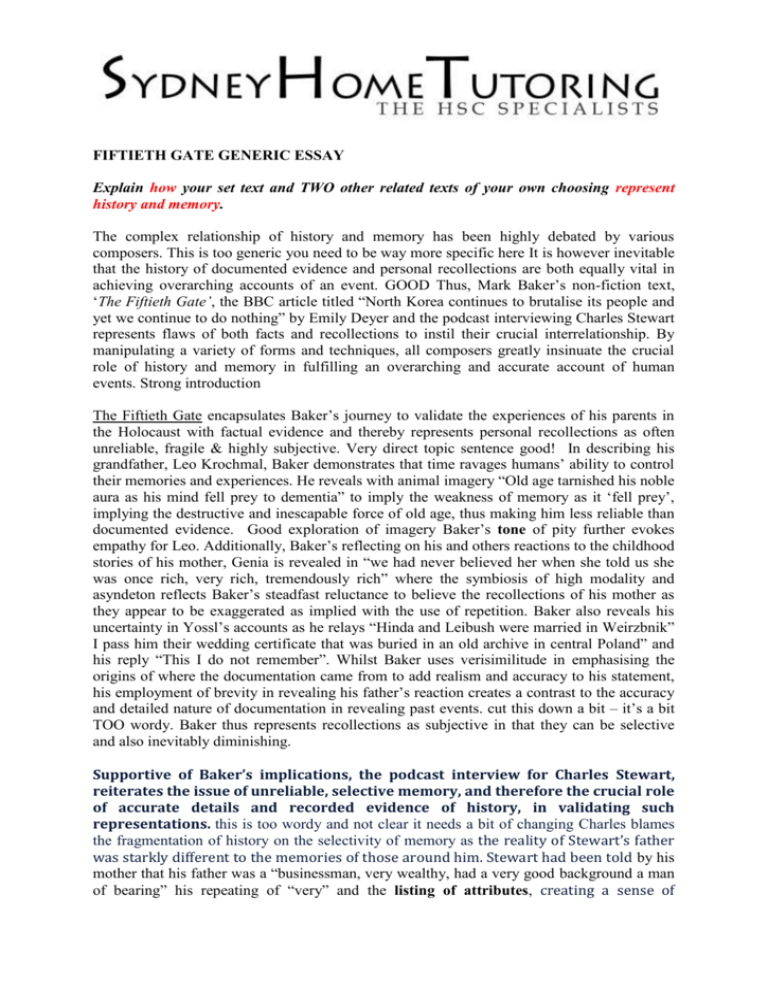
FIFTIETH GATE GENERIC ESSAY Explain how your set text and TWO other related texts of your own choosing represent history and memory. The complex relationship of history and memory has been highly debated by various composers. This is too generic you need to be way more specific here It is however inevitable that the history of documented evidence and personal recollections are both equally vital in achieving overarching accounts of an event. GOOD Thus, Mark Baker’s non-fiction text, ‘The Fiftieth Gate’, the BBC article titled “North Korea continues to brutalise its people and yet we continue to do nothing” by Emily Deyer and the podcast interviewing Charles Stewart represents flaws of both facts and recollections to instil their crucial interrelationship. By manipulating a variety of forms and techniques, all composers greatly insinuate the crucial role of history and memory in fulfilling an overarching and accurate account of human events. Strong introduction The Fiftieth Gate encapsulates Baker’s journey to validate the experiences of his parents in the Holocaust with factual evidence and thereby represents personal recollections as often unreliable, fragile & highly subjective. Very direct topic sentence good! In describing his grandfather, Leo Krochmal, Baker demonstrates that time ravages humans’ ability to control their memories and experiences. He reveals with animal imagery “Old age tarnished his noble aura as his mind fell prey to dementia” to imply the weakness of memory as it ‘fell prey’, implying the destructive and inescapable force of old age, thus making him less reliable than documented evidence. Good exploration of imagery Baker’s tone of pity further evokes empathy for Leo. Additionally, Baker’s reflecting on his and others reactions to the childhood stories of his mother, Genia is revealed in “we had never believed her when she told us she was once rich, very rich, tremendously rich” where the symbiosis of high modality and asyndeton reflects Baker’s steadfast reluctance to believe the recollections of his mother as they appear to be exaggerated as implied with the use of repetition. Baker also reveals his uncertainty in Yossl’s accounts as he relays “Hinda and Leibush were married in Weirzbnik” I pass him their wedding certificate that was buried in an old archive in central Poland” and his reply “This I do not remember”. Whilst Baker uses verisimilitude in emphasising the origins of where the documentation came from to add realism and accuracy to his statement, his employment of brevity in revealing his father’s reaction creates a contrast to the accuracy and detailed nature of documentation in revealing past events. cut this down a bit – it’s a bit TOO wordy. Baker thus represents recollections as subjective in that they can be selective and also inevitably diminishing. Supportive of Baker’s implications, the podcast interview for Charles Stewart, reiterates the issue of unreliable, selective memory, and therefore the crucial role of accurate details and recorded evidence of history, in validating such representations. this is too wordy and not clear it needs a bit of changing Charles blames the fragmentation of history on the selectivity of memory as the reality of Stewart’s father was starkly different to the memories of those around him. Stewart had been told by his mother that his father was a “businessman, very wealthy, had a very good background a man of bearing” his repeating of “very” and the listing of attributes, creating a sense of certainty in the nature of his father. However, his true form as later uncovered through research and study such as the material that “related to him taking his own life” and the event being a “celebrated pursuit around the world”, indeed exposes him as a “charming and considerate conman” as offered by Fidler, the collective use of pauses and alliteration dramatically evincing how selective memory can disguise flawed truths, and thus the fragmentation that occurs when memory and history aren’t balanced. WAYYYYY to long hahahahaha Stewart definitively remarks, “then all of a sudden we realised that the story that we had been told wasn’t quite true”, using inclusive pronoun and slow pace to highlight that most agreed that truth can be omitted and selected by a favourable perspective. Additionally, his reference to “dream-like recollections” employs a compound term to reinforce how memories, like dreams are often fragmented. Good Thereby leading Stewart to imply that physical evidence and relevant historical details are essential in constructing both history and context as they create direct links to correct memory. Fantastic conclusive statement Throughout Baker’s journey of undertaking roles as a mediator between the past, present and future, he becomes newly enlightened of the value of personal recollections, and thereby begins to represent recollections as valuable assets that add a personal dimension to accounts. the more you write the more confusing this becomes Baker is able to illustrate the impact that personal recollections have on an individual, particularly Genia as a direct quotation “Nightfall to me is sadness and darkness and I just can’t disconnect my past” where she uses low modality to convey the extent to which memories haunt her to the present day. Furthermore, Baker’s inclusion of his grandmother, Hinda’s account of death camp in Belzec “we push through the doors toward the shed like brides headed for ritual purification” incorporates an ironic simile in order to evocatively convey the unique and mixed emotions attached to her experience, that cannot be conveyed through documents or words. Get’s better here Additionally, in the event where Baker and Yossl visits the graveyard, Baker asks a rhetorical question “Can you hear, or do the screams from the mass graves drown out the sounds and melody of Wierzbnik in its innocence?” that incorporates sensory imagery to emphasise memories as reality and therefore the eternal power of recollections of personal experience. Genia’s realisation of the importance of her memories is exposed in her emotional statement “so always remember it, and your children will remember it. They will survive, they will sing and they will dance” where she uses asyndeton to illustrate the way our memories will be passed on to our generations and give them a sense of freedom. Thus, Baker reveals the representation of recollections as valuable as they not only add a personal dimension to written accounts but they are relatable and passed on. Good girl but still a bit wordy – you need to get jane’s essay and see how she’s written it! Whilst Emily Deyer’s BBC article echoes Baker’s valuing of personal recollections she additionally represents documentation of history as skewed and highly unreliable as certain facts can be overlooked and unofficially recorded. Indeed the byline of the article “The tale of Shin Dong-Hyuk North Korea’s only concentration camp escapee, exposes the regime’s real face, writes Emily Deyer” points out the main purpose of the article in allowing the recollections of the individual to prove the corrupted nature of certain facts, as further reinforced by the use of alliterative terms “regime’s real face”. Good Deyer’s inclusion of the truncated line “North Korea state officials continue to deny the existence of the camps.” directly mirrors the fragmentation of truth when history is not acknowledged, and thus evinces the value of individual recollections in shedding light on human occurrences. Fine Moreover, a direct quote from Hyuk “Just because people cannot see this, they find it difficult to believe that such things are going on at the moment” sees the use of colloquial diction to appeal to others of the basic truth that just because certain details are not officially declared, it does not mean they cease to exist. Thus Deyer represents history as flawed in that events can simply not be recorded and details can be deliberately overlooked. Concise – this is a good paragraph! Therefore, through the conflicting representations of recorded evidence and recollections, we are given great insight into the complex relationship of history and memory. We come to a conclusive understanding that neither history nor memory are infallible representations of the past- each are flawed in that they are under the influence of purpose, perspective, context and mode of communication. However, when considering the benefits of both concepts together, history and memory interplay to creative a more overarching account than considering either one independently. Strong conclusion your writing in this essay is a bit confusing for now – you need to try make it more concise. Get Jane’s essay and try write a f more concise like her! Otherwise your content is ALL perfect – it’s just your writing for now that’s bringing you down!



